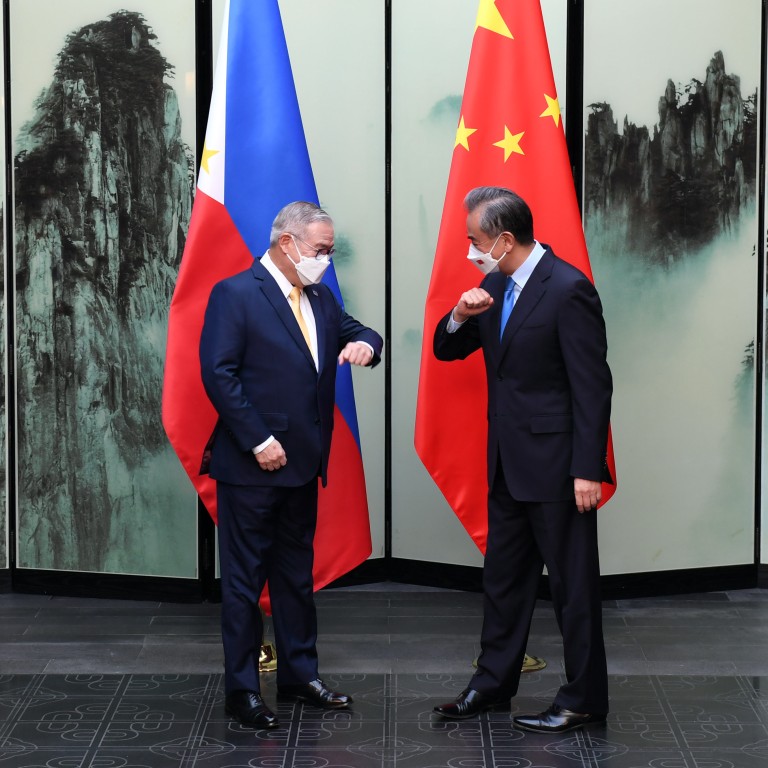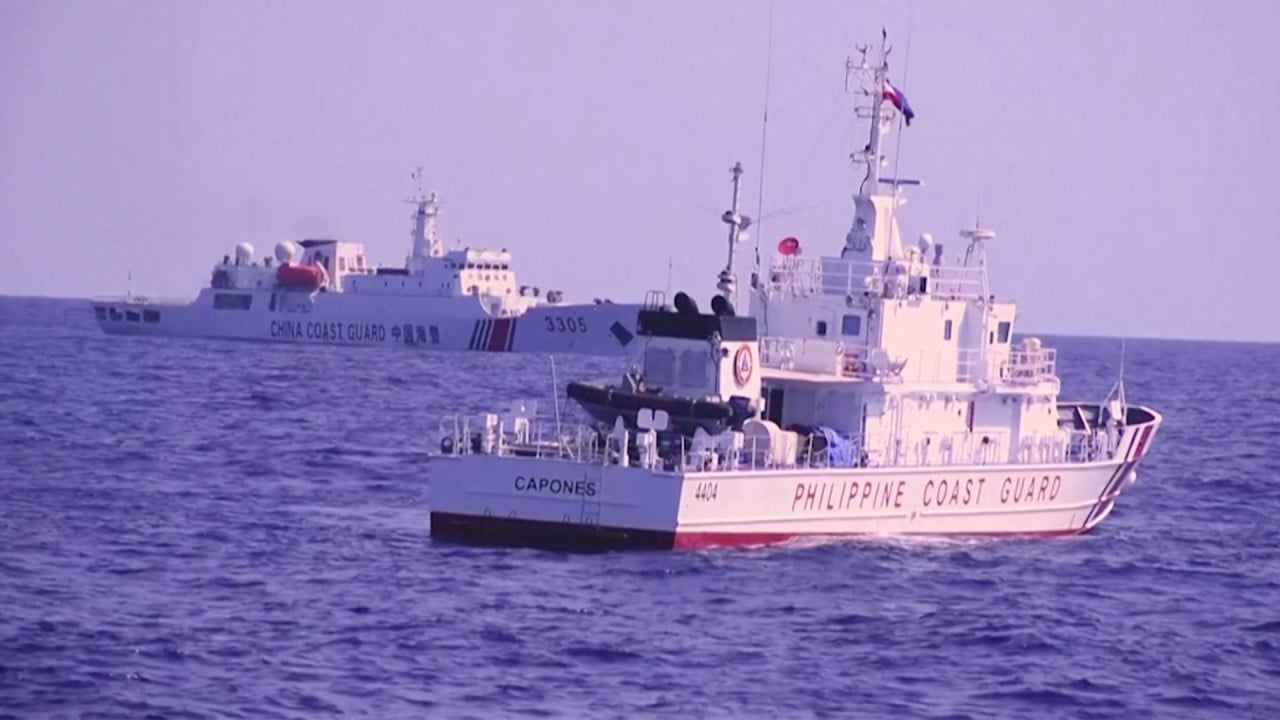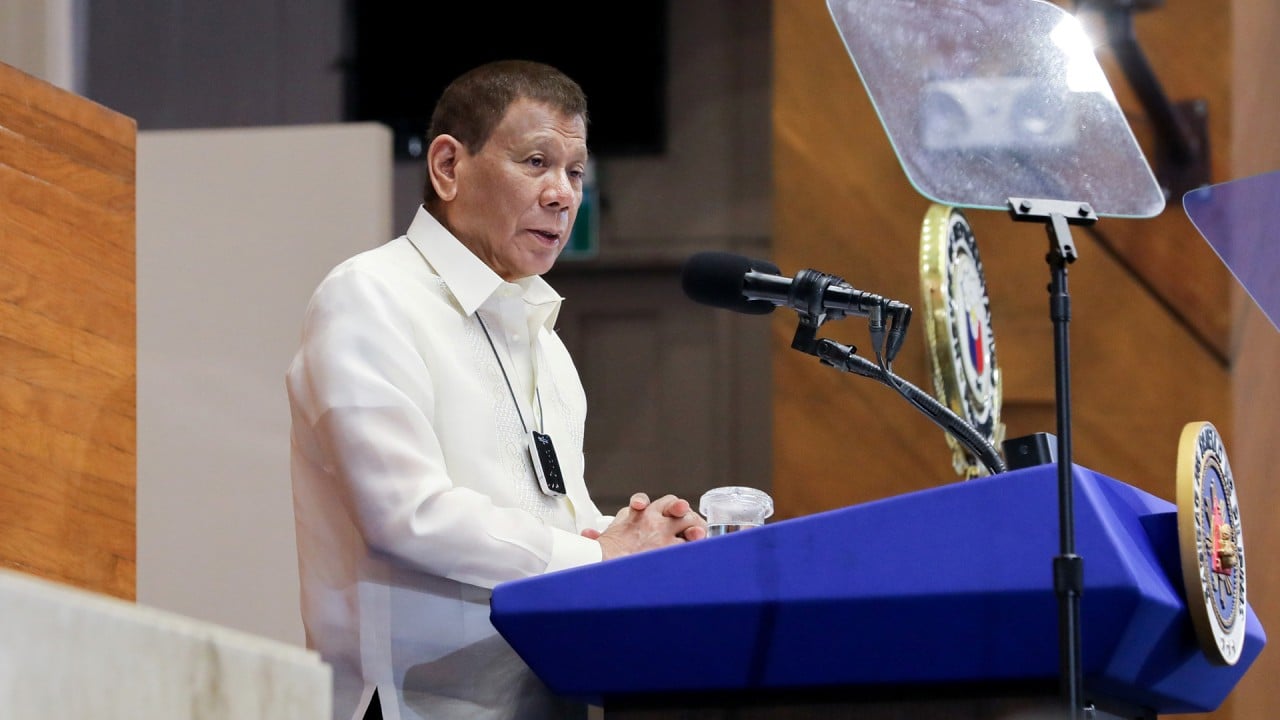
In lead-up to Philippine election, Beijing warns Manila to avoid ‘disturbances’ upsetting its China policy
- During meeting of foreign ministers, China’s Wang Yi says it is crucial their relations are not damaged for the sake of stability in the South China Sea
- Presidents Xi and Duterte are set to speak this week as Philippines takes part in its biggest joint military exercise with US troops in seven years
South China Sea: presidential nominees want Manila to get tough on Beijing
Observers have warned there will be challenges and uncertainties for bilateral ties in the coming months, which some said had a “grim prospect” amid the hardening of views about China in the Philippines ahead of its election.
“China always takes the Philippines as a priority in its neighbourhood diplomacy … The two sides should remove disturbances, calmly and properly manage differences and not let them affect the overall situation of China-Philippines relations,” Wang told Locsin, according to a Chinese readout on the foreign ministry website.
The maritime dispute should be put “in a proper place” within bilateral relations, he was quoted as saying, echoing China’s stance on territorial disputes with other countries, including India.
“At present, it is especially necessary to prevent improper measures from interfering with, or even damaging, the relations between the two countries and the stability of the South China Sea,” Wang said.
In response, Locsin was quoted by state news agency Xinhua as saying the Philippine side was willing to strengthen communication and make joint efforts with the Chinese side. He also praised China as a “responsible” country which was “setting a new example in a turbulent world”, delivering Covid-19 vaccine help and investing in Philippine infrastructure projects, according to Xinhua.
Manila summoned China’s top envoy last month to protest against an “illegal intrusion” of its waters by a Chinese navy ship and Beijing’s dangerous “manoeuvring” in the South China Sea. Beijing has routinely rejected such accusations, insisting it has “sovereign rights and jurisdiction” over the waters.
Zhang Mingliang, a Southeast Asian affairs expert with Jinan University in Guangzhou, said despite the countries’ differences, Beijing would view Locsin’s visit and coinciding trips to China by foreign ministers from Indonesia, Thailand and Myanmar as offering much-needed support.
“It is a very difficult time for Beijing, especially as its ties with Western countries are under growing strain over the Ukraine crisis, and their diplomatic support will be highly appreciated,” he said.
But on China’s Philippine ties, Zhang said “there is little doubt that bilateral relations will see negative changes, with an increasingly grim outlook in the near future”.
In a message that appeared to be aimed at the Philippine election on May 9, Wang voiced support for the outgoing president, whose China-friendly policy has been under attack in the lead-up to the Philippine election.
“Since President Duterte took office, he has firmly pursued a friendly policy towards China, pushing China-Philippines relations out of the trough and on the right track,” Wang said, according to the Chinese readout.
“It is hoped and believed that this correct policy will be continued, the friendship between the two peoples will continue to be carried forward and the pragmatic cooperation between the two sides will maintain a strong momentum.”
China has militarised islands in South China Sea, says US admiral
Zhang said Duterte’s change of attitude showed he was more a shrewd politician than a friend to China. “To Beijing’s disappointment, Duterte’s tougher stance on the South China Sea during the second half of his term has reflected a growing consensus among the Philippine elites on China,” he said.
The joint military drill involving more than 5,100 American troops and 3,800 Philippine participants is called Balikatan, meaning “shoulder to shoulder” and is expected to end on April 8, the same day Duterte is set to talk to Xi.
China is deeply concerned about Washington’s growing presence in the region, particularly about the possibility of more countries being brought into the US-led Quad, denounced by Beijing as an “Asia Nato”, according to Li Mingjiang, an associate professor at Nanyang Technological University’s S Rajaratnam School of International Studies in Singapore.
Manila carried out joint naval exercises last year respectively with three other Quad members – India, Japan and Australia.
Philippines’ new leader must keep South China Sea agreement with Beijing: Duterte
Japan also plans to have “two-plus-two” meetings of foreign and defence ministers with the Philippines in Tokyo this month to discuss the situation in the South China Sea and promote a “free and open” Indo-Pacific region, a thinly veiled reference to China.
Zhang said the real test for Beijing would be how it managed differences with Manila following the change of power after Duterte steps down in June.
“China should demonstrate greater flexibility and tolerance towards Manila’s changing approach on Beijing, considering the deterioration of ties with the US and Europe. Neither Beijing nor Manila could afford confrontation at the moment,” he said.



